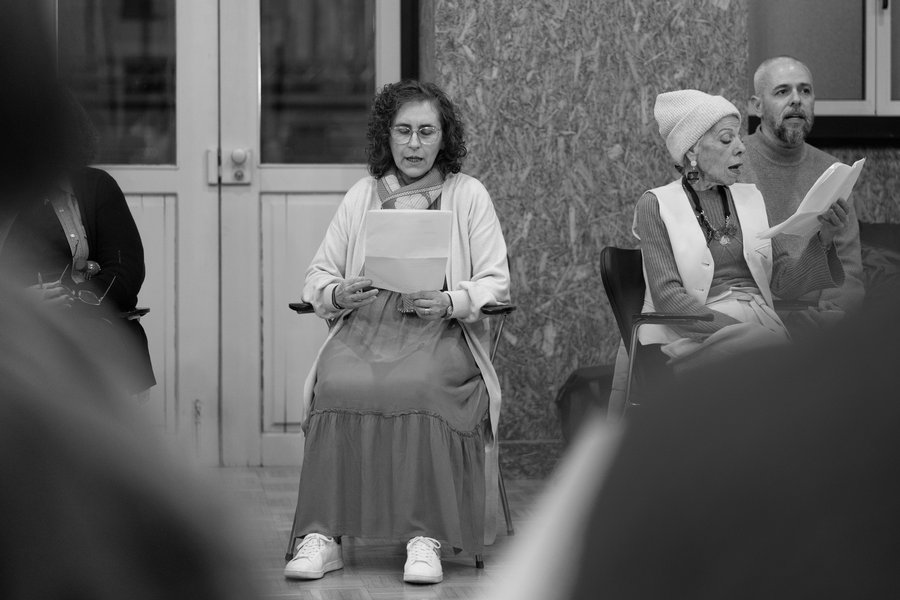Calendar
ODE and CORDÃO
In November, ODE - Electronic Devices Orchestra will once again perform to the public after several months of creative sessions under the artistic direction of Angélica Salvi, a Spanish harpist and composer. In this performance, ODE joins forces with CORDÃO - Choir of Oncological Patients and Friends, a community choir whose main aim is to combat the social isolation of cancer patients and their carers by sewing together new ways of living with and looking at cancer.
- 08 Nov. 6 p.m.
Activity included in the Passport of Circuito
Free entry, limited to capacity of the venue

- 08 Nov. 6 p.m.
Activity included in the Passport of Circuito
Free entry, limited to capacity of the venue
Activity included in the Passport of Circuito
Date 08 nov (sat) | 6:00 p.m | gnration
Free entry, limited to capacity of the venue
Duration 45min approx.
Age rating M/6
Artistic Director Angélica Salvi (ODE), Joana Machado Araújo and Ricardo Baptista (CORDÃO)
Support Portuguese Republic - Culture, Youth and Sports / Directorate-General for the Arts - RTCP - Network of Portuguese Theatres and Cinemas | BPI Bank and ‘la Caixa’ Foundation
Angélica Salvi
Angélica Salvi is a Spanish harpist and composer with an extensive and diverse career. In recent years, she has been deeply involved in the worlds of jazz, pop, rock, experimental and electronic music, collaborating with the areas of dance, theatre and visual arts.
CORDÃO
CORDÃO is a community choir made up of people diagnosed with cancer, in treatment or remission, and their carers. Figuratively, a cord (in portuguese "Cordão") is also something that unites, that binds. With the main aim of combating the social isolation of cancer patients and their carers, this CORDÃO wants to connect people, sewing together new ways of living and looking at cancer.
CORDÃO is a project supported under the 3rd edition of the PARTIS & Art for Change initiative, promoted by the Calouste Gulbenkian Foundation and the ‘la Caixa’ Foundation.

